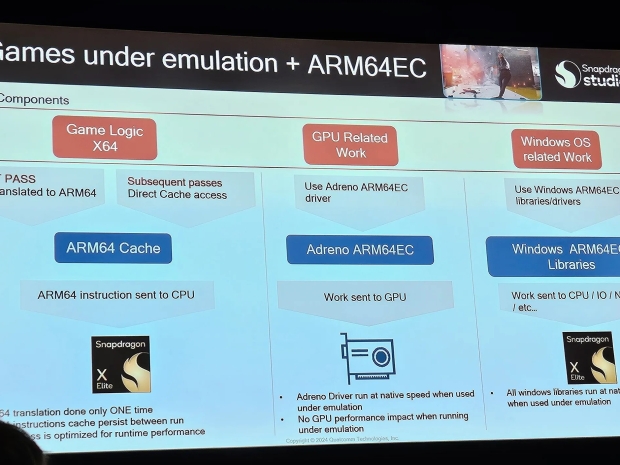If this is the case, it means that someone has fixed Apple's problem with its Rosetta 2 translation layer. This layer facilitates the use of legacy x86 applications without a significant drop in performance. Apple's x86 emulation turned out to be a pain when it came to gaming performance. In fact, it turned out that Apple could not really do it effectively.
The Verge has disclosed that game developers will have a trio of methods to execute existing Windows games on Qualcomm's new Arm chip for Windows:
They can port their games to native ARM64 for optimal CPU performance and energy efficiency, as Qualcomm’s scheduler can adjust the CPU’s frequency accordingly.
Or they can use a hybrid “ARM64EC” application where Windows, its libraries, and Qualcomm’s drivers are native, but the remainder of the app is emulated, achieving "near-native" performance.
Alternatively, they can make minimal changes, and their games should still function — utilising x64 emulation.
Qualcomm backs its claim by noting that GPU-related performance issues often affect most Windows games and that GPU performance on a device is not hindered by emulation.
In support of this, Qualcomm has conducted tests on its Snapdragon X Elite laptops with various titles, such as Control, Baldur's Gate 3, and Redout II. Preliminary benchmark results indicate performance on par with the Radeon 780M when played on a Snapdragon X Elite laptop.
Qualcomm is poised to release its Snapdragon X Series devices later this year.




